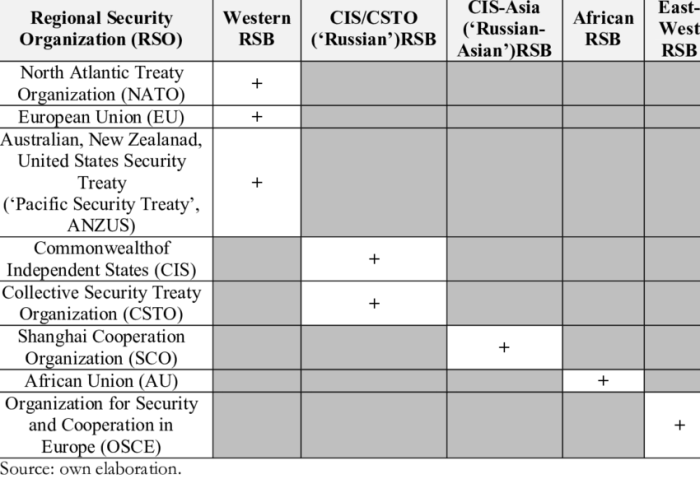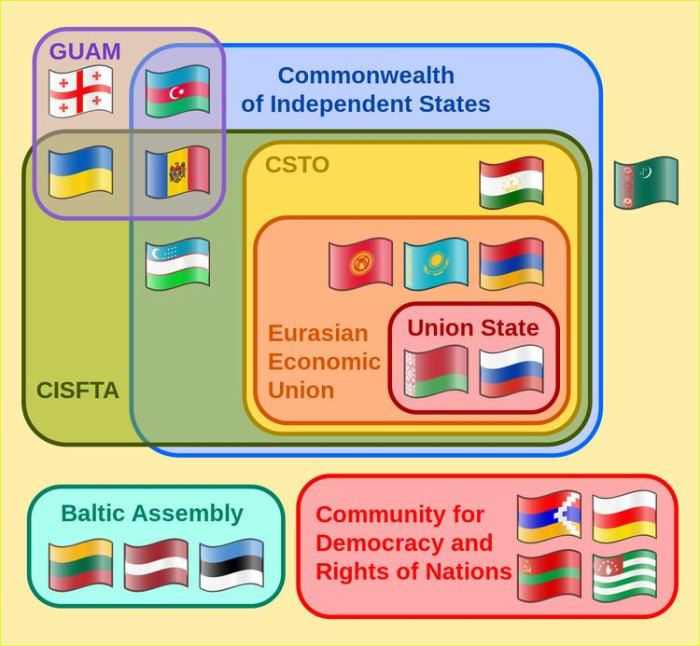Name two specific approaches toward collective security: regional security arrangements and international organizations. Regional security arrangements, such as NATO, are agreements between countries in a specific region to cooperate on security matters. International organizations, such as the United Nations, are global organizations that promote cooperation and conflict resolution among member states.
Both approaches play a vital role in maintaining international peace and security.
This comprehensive overview will delve into the intricacies of these two approaches, exploring their strengths, weaknesses, and contributions to collective security. We will examine real-world examples, analyze challenges, and discuss the future prospects of these approaches in safeguarding global stability.
Regional Security Arrangements
Regional organizations play a vital role in contributing to collective security by fostering cooperation and reducing the likelihood of conflict among neighboring states. These organizations facilitate dialogue, promote economic and social development, and provide a framework for addressing common security challenges.
Examples of successful regional security arrangements include the European Union (EU), the Association of Southeast Asian Nations (ASEAN), and the Gulf Cooperation Council (GCC). The EU, in particular, has been instrumental in preventing conflict and promoting stability in Europe since its establishment.
Challenges and Limitations, Name two specific approaches toward collective security
- Regional organizations may be limited by their geographic scope and political dynamics.
- They may face challenges in balancing the interests of different member states.
- Regional arrangements may also be influenced by external powers or global events.
International Organizations
International organizations, such as the United Nations (UN), play a critical role in promoting collective security by providing a global forum for cooperation and conflict resolution. The UN Charter Artikels the organization’s primary objectives of maintaining international peace and security.
The UN has facilitated cooperation on a wide range of issues, including arms control, peacekeeping, and humanitarian assistance. For example, the UN Security Council has authorized peacekeeping missions in conflict zones around the world.
Strengths and Weaknesses
- Strengths:Legitimacy, global reach, and ability to bring together diverse perspectives.
- Weaknesses:Can be slow and bureaucratic, subject to political influence, and limited by member states’ willingness to cooperate.
Collective Defense Agreements

Collective defense agreements, such as the North Atlantic Treaty Organization (NATO) and the Warsaw Pact (now dissolved), are formal agreements between states to come to each other’s aid in the event of an attack. These agreements contribute to collective security by deterring potential aggressors and providing a framework for collective action.
NATO, for example, has been instrumental in maintaining stability in Europe and preventing conflict between its member states.
Advantages and Disadvantages
- Advantages:Deterrence, collective action, and burden-sharing.
- Disadvantages:May lead to arms races, can be costly to maintain, and may limit flexibility in foreign policy.
Arms Control and Disarmament

Arms control and disarmament agreements aim to reduce the risk of war by limiting the development, production, and deployment of weapons. These agreements contribute to collective security by reducing the potential for conflict and building trust between states.
Examples of successful arms control agreements include the Nuclear Non-Proliferation Treaty (NPT) and the Intermediate-Range Nuclear Forces (INF) Treaty.
Challenges and Obstacles
- Challenges:Verification and enforcement, technological advancements, and political will.
- Obstacles:Lack of trust between states, vested interests in the arms industry, and differing perceptions of security needs.
Conflict Resolution Mechanisms

Conflict resolution mechanisms, such as mediation, negotiation, and arbitration, provide peaceful means to resolve disputes and prevent conflict escalation. These mechanisms contribute to collective security by promoting dialogue, facilitating compromise, and restoring relationships between conflicting parties.
The United Nations, regional organizations, and non-governmental organizations (NGOs) play a vital role in providing platforms and support for conflict resolution.
Strengths and Weaknesses
- Strengths:Peaceful resolution, preservation of relationships, and promotion of dialogue.
- Weaknesses:Can be time-consuming, may not always be successful, and may require significant resources.
Common Queries: Name Two Specific Approaches Toward Collective Security
What are the key differences between regional security arrangements and international organizations?
Regional security arrangements are typically focused on a specific geographic region, while international organizations have a global mandate. Regional security arrangements are often more flexible and can respond more quickly to regional crises, while international organizations provide a broader framework for cooperation and conflict resolution.
What are some of the challenges facing regional security arrangements and international organizations?
Regional security arrangements can be hampered by regional rivalries and mistrust, while international organizations can be constrained by bureaucratic inefficiencies and a lack of enforcement mechanisms.
What is the future of collective security?
The future of collective security depends on the continued cooperation and commitment of states to regional security arrangements and international organizations. It also requires a willingness to address emerging challenges, such as terrorism, cyber warfare, and climate change.